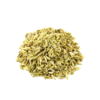Cashews are found mostly in South America and are native to Brazil. They are also produced in large amounts in regions with mostly warm climates. Cashews are mostly known as tree nuts but they are actually seeds.
Cashews are rich in nutrients and have proven to be beneficial for improving heart health as well as overall well being. Cashews are sold both raw and roasted or in salted and unsalted form. They are also processed to be used as healthy dairy alternatives, such as cashew-milk, cashew-cheese and cashew-cream.
Outlined below are a few of the many reasons why you should include cashews in your daily diet.
Cashews are full of nutrition
Cashews are rich in different types of nutrients. They are a great source of healthy food as they are low in sugars and high in unsaturated fats. According to a PubMed study, unsaturated fats in cashews may prevent the risk of heart diseases and premature death. They are also rich in fiber which significantly helps in improving digestion and may relieve constipation.
Moreover, a handful of cashews contain about 67% of copper, a nutrient beneficial for energy production, stronger immune system and healthy brain growth. Additionally, they are a healthy source of manganese, which is significant for bone health.
Cashews are rich in antioxidants
Cashews are rich in polyphenols and carotenoids, kinds of plant compound antioxidants that help in lowering the levels of oxidative cell damage. They are beneficial components that keep your cells healthy and control any damage caused by free radicals — molecules found in the body. In turn, they help reduce the risk of inflammation and improve the body’s ability to stay free from disease.
Roasted cashews have more amounts of antioxidants than raw ones, as roasting the cashews increases the phenolic content present in them.
Cashews improve heart health
Cashews, like most nuts, have been linked to preventing major problems like heart diseases and stroke. They are also associated with lowering the risk of high LDL cholesterol. Moreover, substituting foods with higher sugar and carbs with cashews is likely to prevent higher sugar levels in the blood.
Additionally, the magnesium found in cashews may reduce the risk of coronary heart diseases, insulin resistance and kidney stones.
Cashews protect against type-2 diabetes
People with type 2 diabetes may benefit from adding cashews to their diet.
In part, because cashews are a good source of fiber — a nutrient that helps prevent blood sugar spikes and is considered to offer protection against type 2 diabetes
According to a study published in Int J Endocrinol Metab, people having type 2 diabetes ate about 10% of their calories from cashews which, in the end, resulted in lower insulin levels in their body than those who did not consume cashews at all.
Cashews boost bone health
Cashews are high in copper which helps in improving bone density. Copper deficiency can lead to osteoporosis and other severe bone-related problems. It also plays an important role in the balancing of elastin and collagen, the major structural components of our bodies.
The magnesium present in cashews is also important for bone formation as it helps concentrate calcium into the bone.
Cashews can be a versatile addition to your diet. Eat them however you like: raw, roasted, salted or unsalted. What’s more, you can add them to your favorite dishes for a sweet, salty taste or use them in powdered form to make your own desserts and sauces.









